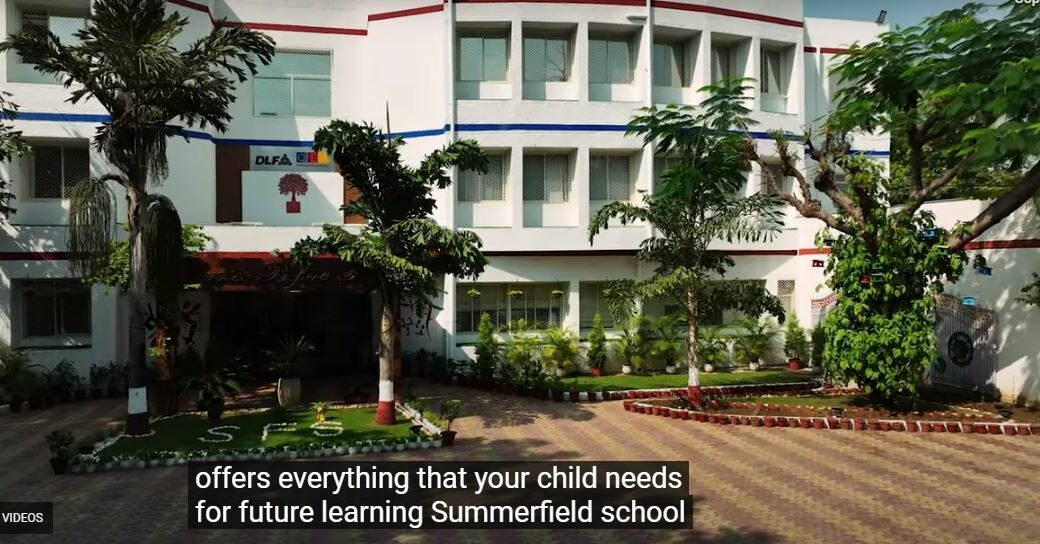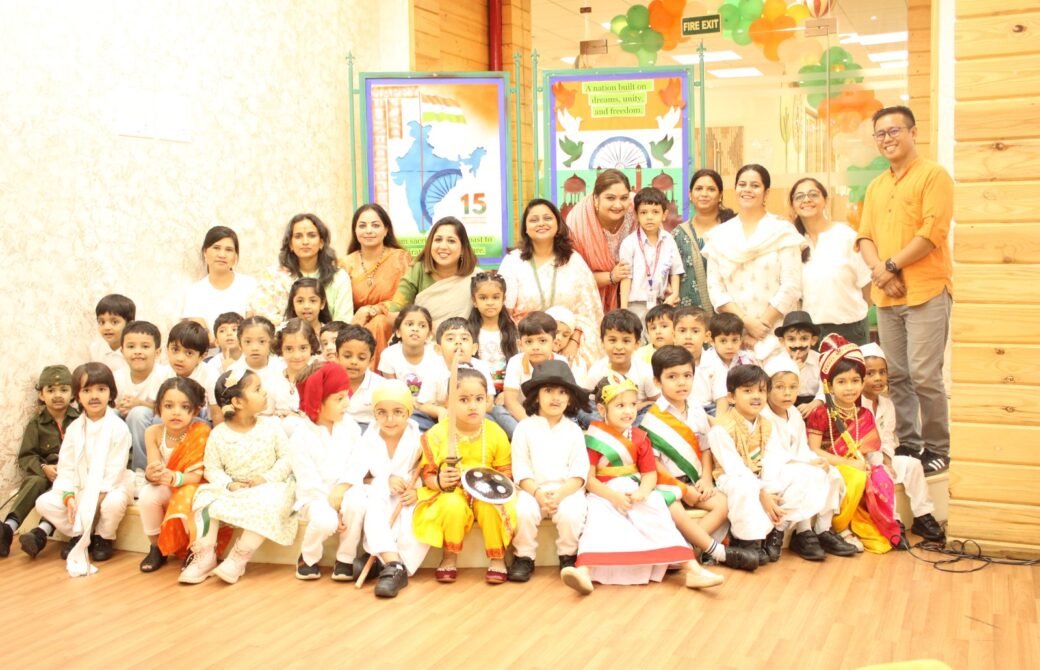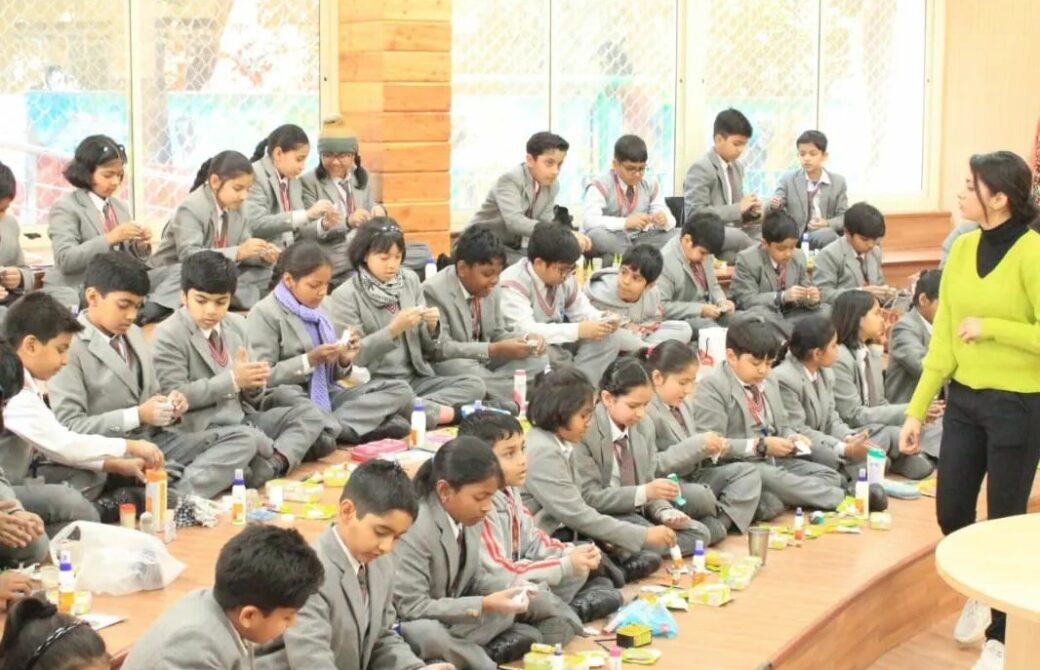Introduction:
Selecting the right school for your child is one of the most meaningful choices a parent can make. At Summer Fields School, the Best CBSE Schools in Gurgaon where this great school lays the foundation not only for academic success but also for emotional growth, curiosity, and lifelong confidence. In an age of abundant choices, finding the ideal environment that fits your child’s needs can be challenging.
When exploring CBSE Schools, parents should look beyond rankings or infrastructure alone. The focus should be on how effectively a school nurtures each student’s individual potential, encourages creativity, and prepares them for the demands of the modern world.
This guide walks you through essential factors that every parent must consider while choosing the right school—helping you make an informed decision that supports your child’s holistic growth and happiness.
About Us:
At Summer Fields, we believe choosing the right school begins with understanding your child’s unique potential. With over 35 years of legacy, our campus offers more than textbooks: from robotics clubs and theatre productions to inter-house sports and art exhibitions, every child finds space to explore. We host annual science fairs, literary festivals and community service drives to enrich the learning experience. Our teacher-student ratio ensures each learner receives personal guidance in academics and character development. We partner with parents through regular open houses and workshops, ensuring your child thrives in both mind and heart. In a school environment where curiosity is celebrated, you’ll discover how education, values and activities work together to build confident, well-rounded students ready for tomorrow.
1. Understanding Your Child’s Learning Needs
Every child has a distinct way of understanding the world. Some are visual learners who absorb concepts through imagery, while others grasp better through discussions or practical experience. Recognizing your child’s learning style is the first step toward finding a school where they can truly thrive.
The best schools emphasize individualized attention, providing students with learning opportunities tailored to their pace and abilities. In an encouraging environment, children develop self-confidence, curiosity, and a natural love for learning—qualities that define lifelong achievers.
2. Academic Excellence with a Modern Approach
Academic excellence remains a cornerstone of a great education, but modern schools now define it beyond just high marks. Today’s learning involves critical thinking, conceptual understanding, and creativity.
Institutions affiliated with the Central Board of Secondary Education (CBSE) stand out for their structured yet flexible approach. They focus on comprehension, real-world application, and continuous assessment rather than rote memorization.
When evaluating CBSE Schools, look for those that integrate technology, use interactive teaching methods, and provide opportunities for students to apply knowledge in practical ways. Schools that emphasize conceptual clarity help children become confident problem-solvers, capable of adapting to future academic and professional challenges.
3. Balancing Academics with Co-Scholastic Activities
Education today is about developing the whole child. A truly balanced school experience includes academics, arts, sports, and life skills.
Schools that rank among the best school emphasize holistic education—one that encourages exploration through:
- STEM programs promoting scientific and analytical thinking
- Visual and performing arts nurturing creativity
- Physical education and sports building discipline and teamwork
- Clubs and projects cultivating leadership and collaboration
A balanced curriculum ensures that students don’t just perform well in exams, but also grow emotionally, socially, and intellectually.
4. Building Character and Values
While academic knowledge is vital, character and integrity define a person’s success in life. The finest schools instill timeless values such as honesty, empathy, and respect for diversity.
Parents should look for institutions that weave moral and ethical lessons into their daily teaching practices. Value-based education creates individuals who are not only skilled and intelligent but also compassionate and socially responsible.
Through initiatives like community service, environmental programs, and cultural celebrations, students learn to respect people, nature, and the larger world around them.
5. Infrastructure That Inspires Learning
A school’s environment deeply influences a child’s learning experience. Modern infrastructure is not just about large buildings but about creating safe, inspiring, and interactive spaces.
The CBSE Schools are designed to enhance student engagement through:
- Digitally equipped classrooms with smart learning tools
- Well-stocked libraries encouraging independent reading
- Science, robotics, and language labs for hands-on exploration
- Art studios and auditoriums fostering self-expression
- Playfields and indoor arenas supporting physical development
Safety measures, hygiene standards, and inclusive design are equally important. When a school provides a vibrant yet secure setting, children feel more confident and eager to learn.
6. Teachers: The Mentors Who Shape Futures
Behind every successful student stands an inspiring teacher. Great schools attract and retain qualified, passionate educators who go beyond the syllabus to make learning meaningful.
A key characteristic of top institutions is their investment in teacher development programs. Continuous training ensures that educators stay updated with evolving methodologies, from experiential learning to digital pedagogy.
Parents should observe how teachers interact with students. Are they approachable? Do they encourage curiosity and critical thinking? Teachers who inspire children to question, explore, and express themselves freely lay the groundwork for intellectual independence and lifelong success.
7. Emotional Well-being and Mental Health Support
Academic achievement cannot exist without emotional stability. Progressive schools prioritize mental wellness, ensuring students feel valued, supported, and heard.
Wellness initiatives like counseling cells, mindfulness sessions, and peer mentoring programs help students manage stress and develop resilience. A caring atmosphere, where teachers and staff recognize individual needs, makes all the difference.
Institutions that foster empathy, inclusion, and kindness prepare students not just for exams—but for life.
8. Collaboration Between Parents and Educators
A child’s education is most effective when parents and teachers work hand in hand. Open communication creates trust and ensures that each child receives consistent guidance at home and school.
The CBSE Schools actively encourage parental participation through:
- Regular parent-teacher meetings
- Progress reports and learning analytics
- Workshops for skill-building and awareness
- Transparent communication platforms
When parents are involved, they better understand their child’s progress and can reinforce positive habits outside the classroom.
9. Learning Beyond Textbooks
True education extends beyond academic walls. The best institutions emphasize real-world exposure through field trips, student exchanges, leadership camps, and global collaborations.
Students benefit immensely from experiential learning opportunities such as:
- Model United Nations (MUN) and inter-school debates
- STEM competitions and innovation fairs
- Cultural and art festivals celebrating diversity
- Entrepreneurship projects promoting initiative and creativity
These activities develop communication, teamwork, and decision-making—skills essential for success in the 21st century.
10. Smart Use of Technology in Education
Technology has become an integral part of modern learning. Schools that adapt digital tools effectively create more dynamic and accessible classrooms.
Virtual labs, AI-powered learning platforms, and online assignments make education engaging and flexible. However, responsible usage matters just as much. The best schools balance screen time with hands-on experiences, teaching digital citizenship and online safety.
When used thoughtfully, technology transforms classrooms into spaces of exploration and innovation.
11. Safety, Security, and Inclusivity
A parent’s peace of mind begins with knowing their child is safe. Schools must have robust security systems, including verified staff, CCTV surveillance, and secure transportation.
Equally important is emotional safety—ensuring children are free from bullying or discrimination. Inclusive classrooms, anti-bullying initiatives, and student wellness programs help build respectful, supportive communities.
Institutions that value every learner’s individuality create confident, empathetic, and responsible citizens.
12. Evaluating the School’s Reputation and Achievements
When shortlisting schools, research their track record. Consistency in board results, co-curricular success, and alumni achievements often reflect the school’s commitment to quality.
Check online reviews, official websites, and school rankings for insight into academic standards and overall student experience. But beyond statistics, focus on how the school defines success—through the values it instills, the confidence it nurtures, and the lives it transforms.
13. Extracurricular Opportunities for Holistic Growth
Extracurricular programs help children discover their passions and develop well-rounded personalities. Schools that offer varied activities—sports, music, robotics, theatre, debate, and creative writing—encourage exploration and confidence-building.
Participation in these pursuits teaches discipline, leadership, and perseverance. It also promotes mental balance, helping students handle academic pressure with enthusiasm and focus.
14. Accessibility and Practical Considerations
While quality is key, practical aspects like affordability, location, and transportation matter too. The right school should be conveniently accessible and provide reliable transit options.
Many reputed CBSE institutions also offer scholarships or merit-based concessions, ensuring that financial limitations don’t stand in the way of quality education.
Choosing a school that aligns with both your educational expectations and logistical comfort ensures a smoother and stress-free experience for both parents and children.
15. Visiting the Campus: The Deciding Step
Before making the final decision, visit the school in person. A physical tour offers valuable insight into the atmosphere, infrastructure, and overall culture.
Observe how students interact with teachers, check classroom dynamics, and notice whether the environment feels positive and engaging. Talk to faculty members, and if possible, attend an orientation session to understand the school’s vision and daily routines.
Often, a single visit helps parents connect emotionally with the place where their child will spend crucial growing years.
16. Matching the School’s Vision with Your Family’s Values
Every institution has a distinct philosophy. Some focus on discipline and structure, while others emphasize creativity and exploration. Choose a school whose principles reflect your family’s outlook on education.
When your values and the school’s mission align, your child experiences consistency, support, and motivation across all areas of life.
Schools that prioritize compassion, innovation, and inclusivity build a foundation that empowers children to thrive not just academically but also as global citizens.
17. Navigating the Admission Process
Once you’ve shortlisted potential schools, familiarize yourself with their admission criteria. Reputed institutions maintain transparent processes, outlining age eligibility, documentation, and evaluation procedures clearly.
Some schools conduct interactive sessions to understand the child’s aptitude and personality. This helps ensure a good match between the student’s learning style and the school’s methodology.
Prepare all documents in advance and engage with the admission team early to avoid last-minute rushes.
18. Making an Informed and Heartfelt Choice
Choosing the right school isn’t about finding the most popular one—it’s about identifying where your child will feel inspired, valued, and challenged to reach their full potential.
The CBSE Schools excel because they believe education should ignite curiosity, strengthen values, and nurture independent thought. They combine world-class academics with emotional and creative development, preparing students for a dynamic, fast-evolving future.
When you select a school that believes in holistic development, you’re not just enrolling your child—you’re setting them on a lifelong path of learning and discovery.
Conclusion:
At Summer Fields School, education is viewed as a journey of growth, exploration, and self-discovery. At Summer Fields School, the Top CBSE Schools in Gurgaon where the school blends academic excellence with innovation, focusing equally on emotional intelligence and ethical values. With a progressive CBSE curriculum, modern infrastructure, and a nurturing environment, it provides students with the tools to excel in every sphere of life. From sports and performing arts to technology integration and leadership programs, every aspect of learning here is designed to empower children to become confident, compassionate, and future-ready individuals.
FAQs:
Q. 1 What should parents prioritize when choosing a school for their child?
Ans : Parents should look for balanced academics, values-based learning, and strong teacher support that nurtures both intellect and character.
Q. 2 How do good schools assess a child’s overall development?
Ans : They evaluate academic progress along with creativity, social skills, and emotional growth through interactive learning methods.
Q. 3 Why is school culture important for a child’s success?
Ans : A positive, inclusive culture builds confidence, motivation, and a lifelong love for learning.
Q. 4 How can parents know if a school aligns with their child’s needs?
Ans : Visiting the campus, meeting teachers, and observing classroom interaction help gauge if the environment suits the child’s personality.
Q. 5 Do extracurricular activities really influence school choice?
Ans : Yes, they enhance creativity, teamwork, and leadership—essential traits for holistic education.
Q. 6 What makes schools ideal for modern learners?
Ans : They combine academic rigor with global exposure, digital tools, and values-based teaching for complete child development.









